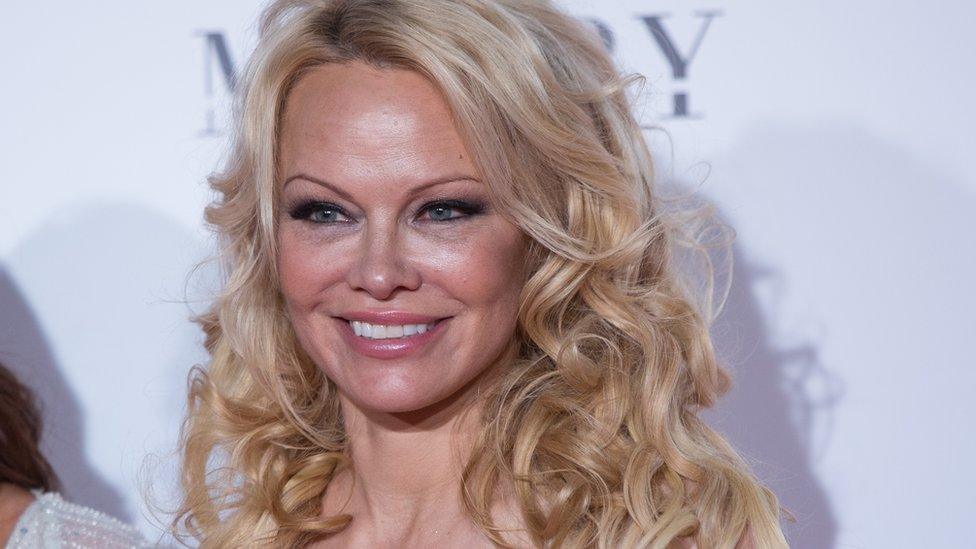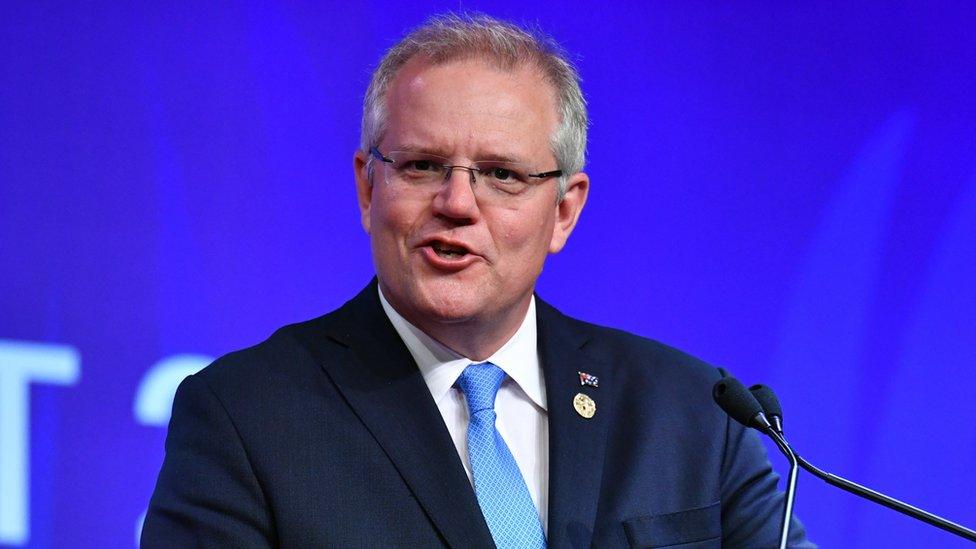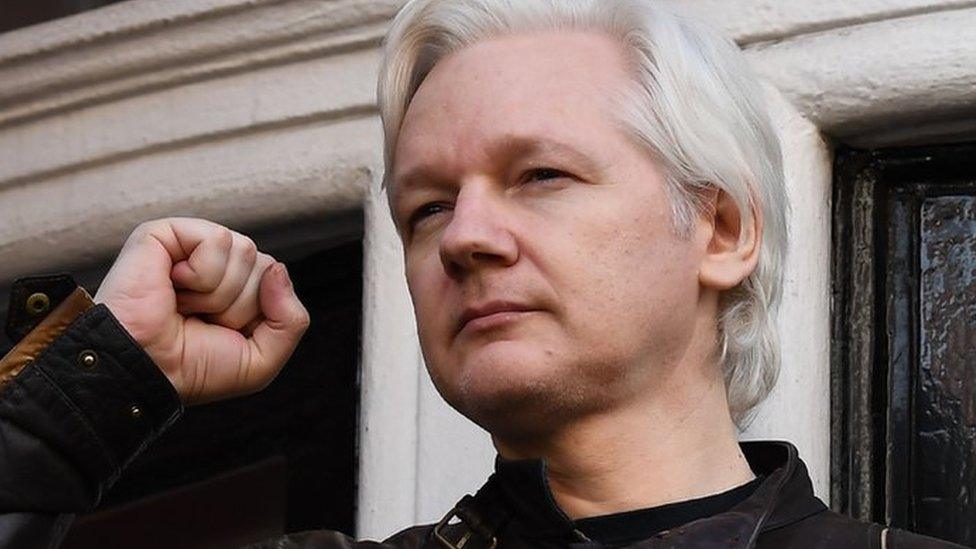Pamela Anderson criticises Australia PM for 'smutty' comment
- Published

Pamela Anderson has been a vocal supporter of Julian Assange
Actress Pamela Anderson has criticised Australia's prime minister for making "smutty" remarks about her, after earlier asking him to help Wikileaks founder Julian Assange.
Ms Anderson had urged Scott Morrison to bring Mr Assange to Australia.
Mr Morrison rejected her plea, but said he had "plenty of mates who have asked me if they can be my special envoy to sort out the issue with Pamela".
A government minister defended his comment as being "light-hearted".
Mr Morrison has not responded to Ms Anderson's criticism.
Mr Assange, an Australian citizen, claimed asylum in Ecuador's London embassy in 2012 to avoid extradition to Sweden over sexual assault allegations - a case that has since been dropped.
He has remained in the embassy over fears of extradition to the US. Last week, US media reported officials were preparing charges against him.
Criticism of language
Earlier this month Ms Anderson, a former Baywatch star and long-time advocate for Mr Assange, had called on the Australian government to help him.
"Get Julian his passport back and take him back home to Australia and be proud of him, and throw him a parade when he gets home," she told Australia's 60 Minutes programme.

Scott Morrison rejected Ms Anderson's plea
Mr Morrison's comment was made soon afterwards on a radio programme. He also reiterated Australia's position that it would not intervene in Mr Assange's case.
On Sunday, Ms Anderson wrote in an open letter, external: "You trivialized and laughed about the suffering of an Australian and his family.
"You followed it with smutty, unnecessary comments about a woman voicing her political opinion."
Several Australian politicians backed her criticism of Mr Morrison's language, even if some disputed her views on Mr Assange's case.
Labor Senator Kristina Keneally tweeted, external: "It's high time men, including @ScottMorrisonMP, stopped using a woman's sexuality & appearance to denigrate her political arguments."
Independent Senator Derryn Hinch added that Mr Morrison "really should not have said it".
One government minister, Steve Ciobo, told Australian media: "I suspect it was a statement that was said in a light-hearted way".
- Published16 November 2018
